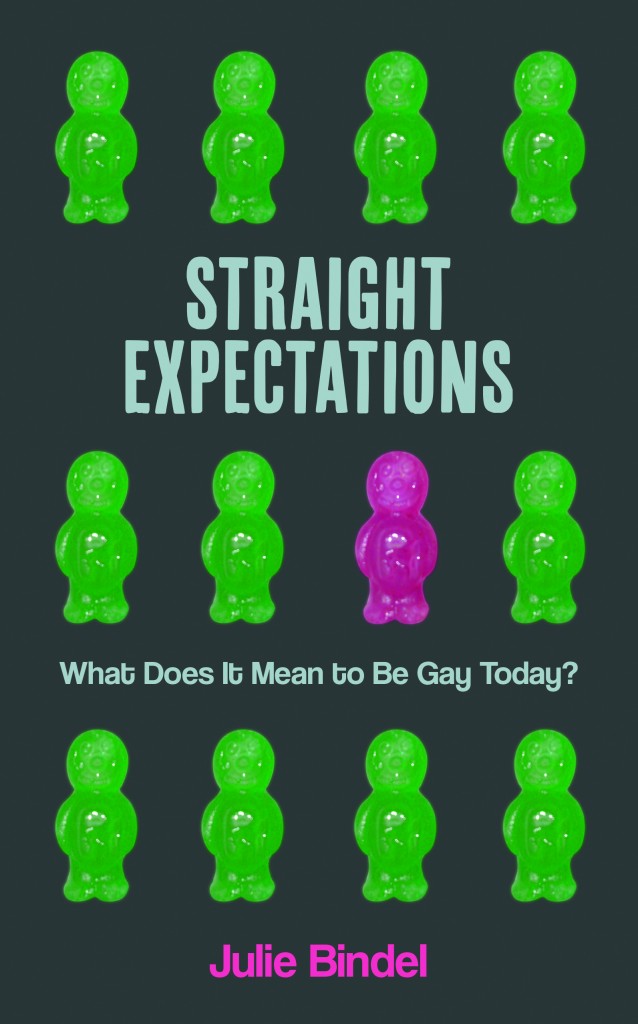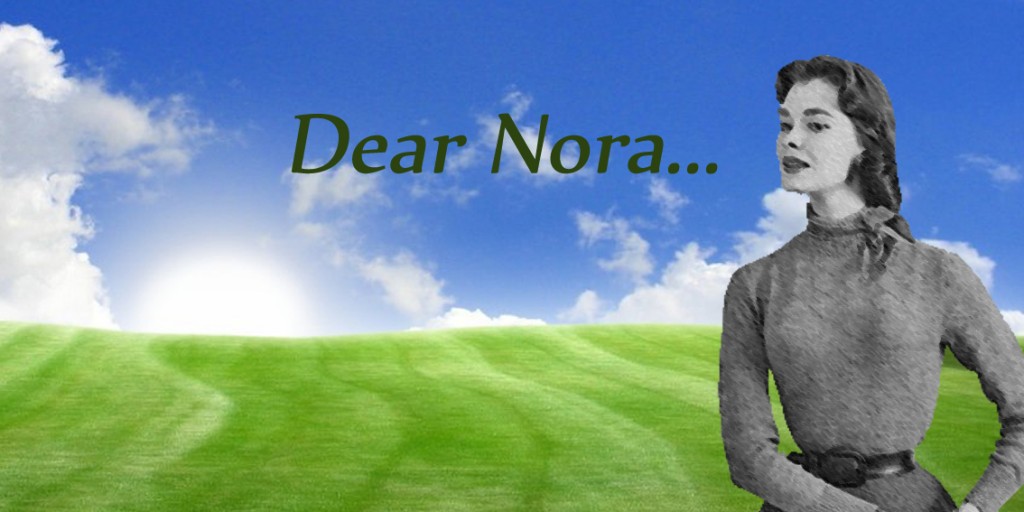Dear Nora: I read a book by Julie Bindel… and I liked it
Dear Nora,
I have a very delicate and personal problem, please help me, I’m desperate. You see, it all started when I was looking for some holiday reading. On a whim I picked up Julie Bindell’s new book “Straight Expectations” thinking “well, if nothing else I can write a scathing review of it.”
It started well enough. The holiday I mean, but then something very unsettling happened. As I began reading ‘Straight Expectations’ I began empathising with it. Agreeing with it in places even. In fact it was so readable I went from cover to cover in the space of a day.
As you know this would never normally be a problem, but it’s Julie Bindel. She’s someone who is so obsessed with denying the right of transgender people to exist, that they only get mentioned once in 205 pages (and that’s a fairly neutral quote from someone else making an entirely unrelated point). They could barely be mentioned less, almost eradicated!
The thing is, I believe in the rights of trans- people and am convinced by so called sex positive feminists on issues like sex work – I’m simply not a Radical Feminist (although, I suppose I’m a radical and I’m influenced by feminist ideas but that’s not what a Radical Feminist is, they think specific things about patriarchy, the male gaze and that your sex is a social class). However, I do like people who put their case clearly and simply, using facts and logic – and irritatingly that’s what Bindel does here.
There’s barely any bile on display at all, certainly not towards the groups she is supposedly obsessed by, who barely get a look in. Obviously there’s the general disappointment with the human race and the tut tutting about everyone needing to pull their socks up… but I quite liked that.
 It has edge without being controversial for the sake of it. But then I see Spiked liked it and they’re defined by their desire to be controversial for the sake of pseudish faux-radical posturing.
It has edge without being controversial for the sake of it. But then I see Spiked liked it and they’re defined by their desire to be controversial for the sake of pseudish faux-radical posturing.
Genuine insights
I went to see the brilliant film Pride the other day, it tells the true story of the Camden-based Lesbian and Gays Support the Miners (LGSM) group who linked up with a Welsh mining village, tearing down prejudices as they built up solidarity for that generation’s defining struggle. It’s a great, feel good film. But there’s this bit in it where some of the Lesbians go off and form their own group and it’s never really explained why, so you’re just left with the impression that they were miserable splitters.
It’s not a criticism of the film, per se, it was left in because they were trying to be faithful to the real events and people and it was never really explained because it wasn’t a central part of the story, but it did leave me unsatisfied that it was the character who shouted “But I’m not oppressing you!” in his frustration at them leaving who was essentially putting the film’s ‘line’.
Bindel’s book helps explains exactly why groups did sometimes split on these lines, and in terms that makes these radical lesbians seem almost like rational, thinking human beings – if you can imagine such a thing.
For many male gay activists in the eighties political talking points included things like sexual education about your love of penises and the crack down on cottaging, among other things. While hearing someone talk about cocks isn’t particularly oppressive in this context, it might not be very high on your political agenda either. Many lesbians wanted some spaces where male conversation wasn’t dominant and male priorities didn’t always seem to take precedence over theirs.
It’s a central point, and a key one I think. Bindell makes the case to say she is not LGBTQI*, she’s L. And while there are many instances where lesbians share common interests with other gay and oppressed people – if you are not able to articulate your own interests separately, sometimes, your priorities can come pretty low down the shopping list of the group that’s supposed to represent you. Bisexuals have been particularly ill-served by subsuming themselves in this relationship, becoming all but invisible in LGBT.
Bindel’s constructive criticism of LGBT politics in the book really helps tease out some of these issues, but how can I talk about this with anyone when the moment I start they’ll shriek “Bindel? Oh she’s awful!” Well, she might be. But she has written a very interesting book as well as being Rasputin’s evil little sister.
It’s also difficult to discuss the areas of the book that I thought were weaker, in case it looks like I’m backtracking. Like the continued nostalgia for the tiny political groups of the past may seem, to her, to be preferable to the millions of ‘normalised’ gay people living openly and who just want to fit in – but I didn’t see a proper attempt to explain why tens of thousands of gay people getting married was them living pretend heterosexual lives. She doesn’t explain why small groups of political pioneers are better than the social change that they helped to create. I’m not saying she doesn’t have good reasons, only that she didn’t put them in the book, simply relying on us to agree that it was so.
Anyway. You can see my distress. How can I discuss this interesting book with friends and family if the most common response to the words ‘Julie Bindel’ provokes such outrage and disgust that no meaningful conversation is possible?
Yours concerned, Jim
Dear Jim,
You have crossed into the dark side. You are consorting with Terfs (if you’re wondering what T, E, R, F stands for, it is anathema). You will be shunned by all the good people of these islands, denied fire and salt across the nation.
You should know by now that no good ever comes from bad people. From their Cocoa Pops in the morning to kissing the parrot sweet dreams at night they scheme and plot and obsess about the things that the righteous of society have deemed them to be obsessed by. Don’t be fooled by the fact they may not be talking or even thinking about these things, rest assured they are obsessed.
Bindel’s ideas are irredeemably tainted by the real hurt that she has caused and any occasion when she happens to be right, she will still be wrong. You claim not to approve of many of her ideas but did you wear thick gloves to hold her book? Did you wear welder’s goggles to read the pages? I doubt it very much. How can you really be sure you aren’t a Bindelite of the most enormous proportions?
Yes, we must be open to new ideas, different voices, but not bad ones – those we dismiss out of hand. The fact you thought you even needed to read the book at all to know what it said says quite a bit about your sad lack of judgement. You are lost in this world and are clinging to the dark – you will find no solace there. Step into the light-headed ecstasy that is unswerving self-belief.
Nora says; accept the wisdom that is handed down to you from your appointed iconoclasts. Cast out those who would lure you into an abyss of acronyms and shame. Take yourself down to your local re-education centre and hand yourself in at once before you do any more harm to society.
All the best,
Nora
x




Join the discussion